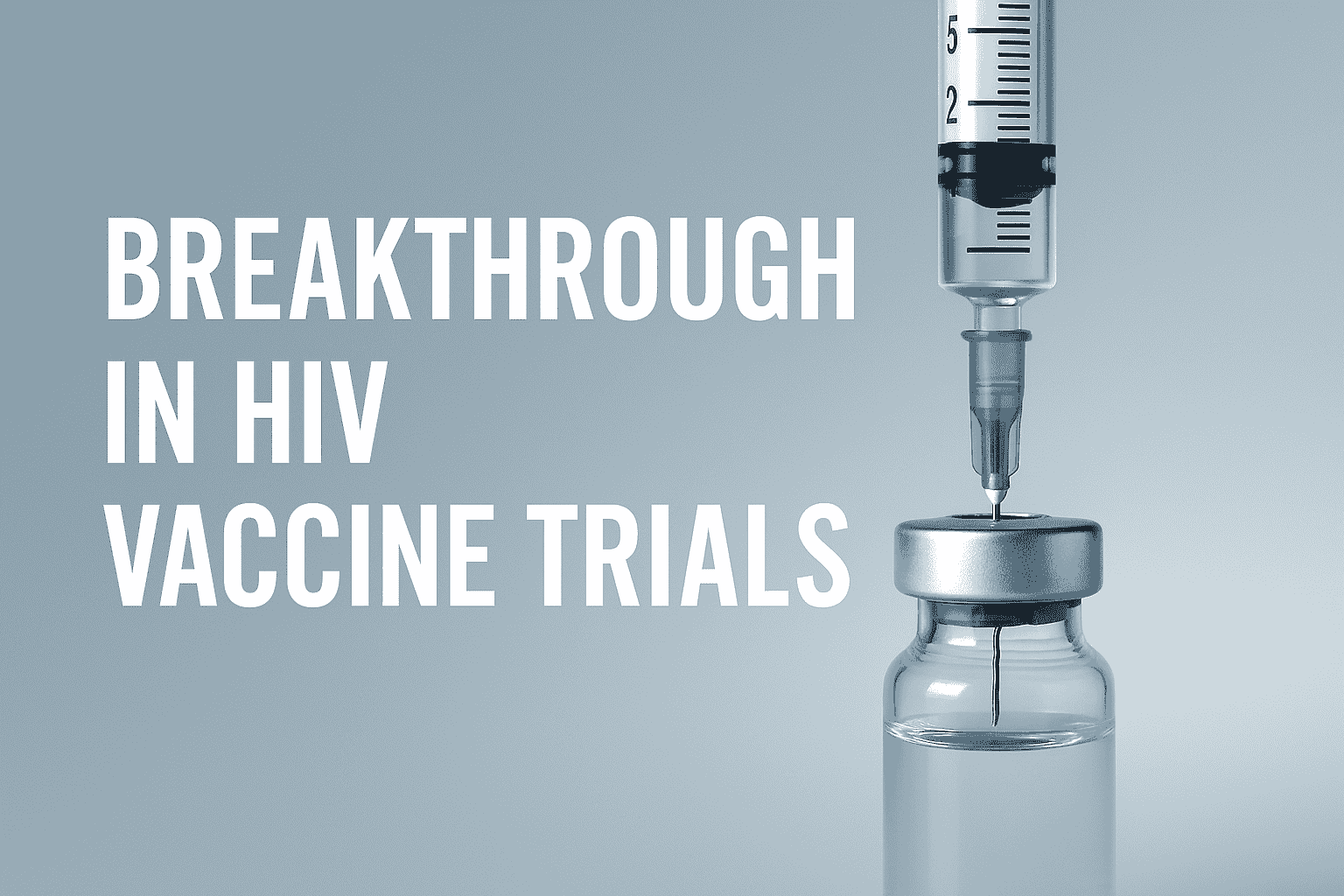Breakthrough in HIV Vaccine Trials
Recent developments in HIV vaccine research have sparked new optimism after two Phase 1 clinical trials showed promising results in humans. While a fully approved HIV vaccine is still some time off, these early findings indicate that scientists are making real progress toward that goal.
The studies, known as G002 in North America and G003 in South Africa, tested a two-step “priming and boosting” approach. This method begins with a priming dose to train the immune system, followed by a different booster shot that pushes immune cells toward producing the rare and powerful broadly neutralising antibodies (bnAbs) needed to block HIV infection. Encouragingly, both trials demonstrated that this method works consistently across different populations, including African participants, which is essential for developing a vaccine that is effective worldwide.
In G002, participants who received both the prime and the booster produced VRC01-class antibodies, considered an important precursor to bnAbs. The results also showed a high rate of immune system maturation toward these advanced antibodies. In G003, a remarkable 94% of participants developed similar immune responses. Notably, the vaccines used mRNA-encoded nanoparticles, a technology similar to that used in COVID-19 vaccines, allowing researchers to develop them more quickly and elicit strong immune reactions.
Safety remains a consideration. Some participants, particularly in the G002 trial, reported mild skin-related side effects such as hives and itching. These symptoms were generally manageable with antihistamines, and fewer such cases were seen in G003. While the trials were not designed to test real-world vaccine effectiveness, they provide a crucial proof of concept: the human immune system can indeed be guided toward making the right kinds of antibodies to fight HIV.
This achievement is significant because developing an HIV vaccine has long been one of the toughest challenges in global health. HIV mutates rapidly, making it extremely difficult for the body to mount a lasting defence. These new results offer the first substantial evidence in humans that a step-by-step, germline-targeting strategy can overcome that hurdle, moving science one step closer to a vaccine that could change the course of the epidemic.



